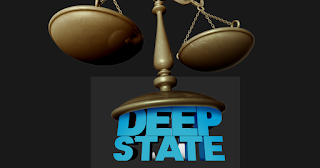Deep state.
The term "Deep State" refers to a theoretical and often controversial concept that suggests the existence of a covert, powerful and influential group or network within a government or other organizations, working behind the scenes to control policy decisions and actions. Proponents of the idea suggest that this secretive group operates outside of the democratic process, with its members having interests that are not aligned with the public's best interests.
deep-State
The concept of the Deep State is often associated with conspiracy theories and is not a widely accepted or well-defined term in political science or other academic disciplines. The idea has gained some popularity in recent years, with many people using it to describe perceived corruption, secrecy, and control within government agencies or other institutions.
Some people believe that the Deep State consists of unelected officials, bureaucrats, and intelligence operatives who wield significant power and influence, regardless of who is in political office. They suggest that these individuals are able to shape policy and decision-making to further their own interests, often at the expense of the public.
Critics of the Deep State concept argue that it is a baseless conspiracy theory that lacks evidence and promotes paranoia and mistrust in government and other institutions. They suggest that the concept is used by those who seek to undermine the legitimacy of elected officials and democratic processes.
In conclusion,
while the term "Deep State" has gained some currency in popular discourse, its validity as a concept is not widely accepted. While it is true that power and influence can exist outside of democratic processes, such as in the form of lobbying or special interest groups, the notion of a secretive, all-powerful group working behind the scenes to control government policy and decision-making lacks concrete evidence and has been widely criticized as a baseless conspiracy theory.



.gif)
0 Comments